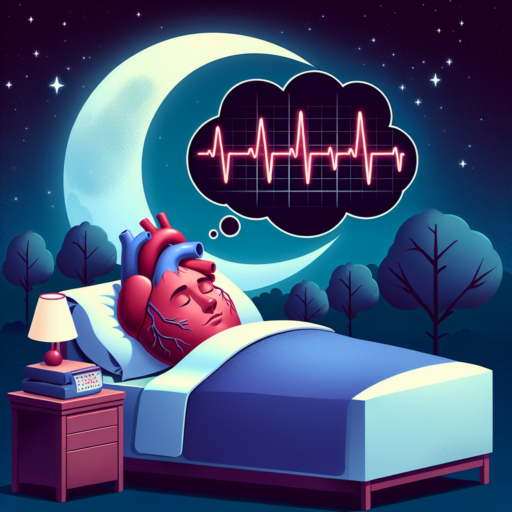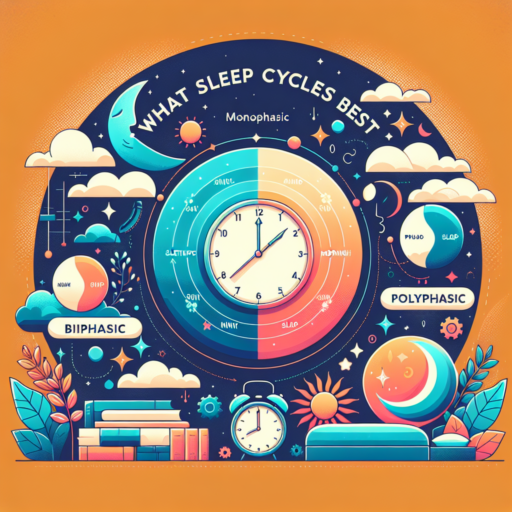No se han encontrado productos.
Understanding HRV and Its Importance in Sleep
In the realm of well-being and health optimization, Heart Rate Variability (HRV) has emerged as a vital indicator that reveals a lot about our physical state, especially during sleep. HRV refers to the variation in the time interval between heartbeats, and understanding its importance in sleep is crucial for anyone aiming to improve their overall health and wellness. This metric offers deep insights into our autonomic nervous system’s performance, indicating how well we recover and rest during the night.
During sleep, the body undergoes significant recovery processes, and HRV serves as a window into the efficiency and quality of these processes. Higher variability in your heart rate indicates a robust and responsive nervous system, one that can adapt efficiently to stress and relaxation cues. Conversely, lower HRV levels during sleep may signal poor recovery, high stress levels, or potential health issues. It’s not just about the duration of sleep but about the quality of rest we get, and monitoring HRV can be an effective strategy to enhance this quality.
Improving HRV through better sleep hygiene can lead to numerous health benefits, including enhanced mood, improved cognitive function, and overall better health outcomes. Practices such as maintaining a consistent sleep schedule, ensuring a relaxing bedtime routine, and minimizing exposure to screens before sleep can positively impact HRV. Additionally, leveraging the insights gained from HRV measurements can empower individuals to make informed decisions about diet, exercise, and stress-management techniques, further enhancing sleep quality and, by extension, general health.
How to Measure HRV During Sleep: Tools and Technologies
Measuring Heart Rate Variability (HRV) during sleep is an effective way to gain insights into your autonomic nervous system and overall health. HRV can signal changes in your stress levels, recovery status, and even predict potential health issues. With advancements in technology, there are multiple tools and technologies designed specifically for tracking HRV during sleep. Understanding these can help you choose the right method for your needs.
Wearable Devices
One of the most popular and convenient methods for measuring HRV is through wearable devices. Many modern fitness trackers and smartwatches come equipped with HRV monitoring capabilities. These devices use optical sensors to measure your pulse rate continuously, providing insights into your HRV patterns while you sleep. Brands like Fitbit, Garmin, and Apple Watch are at the forefront, offering detailed sleep analysis that includes HRV scores. When selecting a device, look for those with advanced sleep tracking features for more accurate HRV data.
Smartphone Apps
Smartphone apps present another accessible tool for HRV measurement. Apps like HRV4Training and Elite HRV use the camera and flashlight on your phone to detect blood flow, thereby calculating your HRV. While this method may not be as accurate as dedicated medical devices, it is a cost-effective and convenient option for individuals looking to get a basic understanding of their HRV patterns during sleep. Ensure you’re in a well-lit room and follow the instructions carefully for the best results.
In conclusion, measuring HRV during sleep can provide valuable insights into your wellness and health. Whether you opt for a wearable device, smartphone app, or more advanced technologies, understanding your HRV patterns can lead to better stress management, improved recovery, and enhanced overall health. Make sure to select the tool that best suits your needs and lifestyle for optimal monitoring of your HRV during sleep.
The Impact of High and Low HRV on Sleep Quality
Understanding the connection between Heart Rate Variability (HRV) and sleep quality is crucial for enhancing overall well-being. HRV measures the time variation between heartbeats and is a valuable indicator of autonomic nervous system function. High and low HRV levels play significant roles in dictating the quality of sleep, affecting both physical and mental health.
High HRV is generally associated with good cardiovascular fitness and may indicate a relaxed state, leading to better sleep quality. Individuals with higher HRV tend to experience deeper sleep cycles, allowing for more effective rest and recovery. This restorative sleep contributes to improved mental health, better mood regulation, and enhanced cognitive functions. It is during these deeper sleep stages that the body performs critical repair processes, fortifying the immune system and releasing growth hormones.
On the other hand, Low HRV signals a reduced parasympathetic (rest and digest) activity, potentially leading to sleep disruptions and lower sleep quality. Issues such as difficulty falling asleep, frequent awakenings, or non-restorative sleep are common among individuals with lower HRV. This can result in feeling less refreshed upon waking and can negatively influence energy levels, mood, and cognitive performance throughout the day. Furthermore, low HRV is associated with higher stress levels, which can further impair sleep quality and create a challenging cycle of sleep disturbances.
Improving Your Sleep: Tips to Optimize Your HRV
Improving your sleep quality is integral to maintaining a healthy, balanced lifestyle. One critical, though often overlooked, aspect of sleep is your Heart Rate Variability (HRV). Optimizing your HRV can lead to tremendous benefits, including better sleep, improved mood, and overall enhanced well-being. Here, we explore several practical tips to help you enhance your HRV, thus improving your sleep quality.
Regular Physical Activity
Engaging in regular physical activity is a cornerstone of boosting your HRV. Activities like walking, cycling, or yoga not only strengthen your heart but also promote a more restful sleep. It’s essential, however, to avoid intense workouts close to bedtime as they might interfere with your sleep patterns. Aim for at least 150 minutes of moderate exercise weekly to see significant improvements in your HRV and sleep quality.
Mindfulness and Stress Reduction
Stress is a known culprit in disrupting HRV. Incorporating mindfulness practices such as meditation, deep breathing exercises, or even a simple gratitude journal can significantly lower your stress levels. In turn, this relaxation response enhances your HRV, making it easier for you to fall asleep and stay asleep. Aim to dedicate a few minutes each day to these practices for the best results.
Optimizing Your Sleep Environment
Creating a conducive sleep environment plays a pivotal role in improving your HRV. Ensure your bedroom is cool, quiet, and dark. Consider using blackout curtains, white noise machines, or comfortable earplugs to eliminate disruptions. Additionally, investing in a high-quality mattress and pillows can provide the support and comfort necessary for deep, restorative sleep. Making these adjustments can profoundly impact your sleep quality and HRV.
HRV and Sleep Disorders: What You Need to Know
Understanding the intersection between Heart Rate Variability (HRV) and sleep disorders opens up new vistas for managing well-being in a holistic manner. HRV, a measure of the variation in time between each heartbeat, is closely linked to our autonomic nervous system’s (ANS) performance. It reflects our body’s ability to adapt to stress and is deeply intertwined with the quality of our sleep.
HRV’s Role in Sleep Quality – HRV doesn’t just offer insights into our physical fitness; it’s also a crucial metric for assessing how well we rest. A higher HRV indicates a relaxed, resilient body, while lower values may signify stress, anxiety, or underlying sleep disorders. By tracking HRV, individuals can gain a clearer understanding of their sleep patterns and the potential disruptions they face.
Furthermore, research suggests a bidirectional link between HRV and sleep disorders. Conditions like insomnia, sleep apnea, and even excessive daytime sleepiness can lead to significant variations in HRV. Consequently, monitoring HRV can provide valuable clues for detecting sleep disorders early and tailoring interventions more effectively.
Understanding how to optimize HRV can thus play a significant role in enhancing overall sleep quality. Simple lifestyle adjustments, such as regular exercise, mindfulness meditation, and proper sleep hygiene, can markedly improve HRV readings and, by extension, the quality of rest we achieve.
The Relationship Between HRV and REM Sleep
The intricate dynamics between Heart Rate Variability (HRV) and Rapid Eye Movement (REM) sleep have garnered significant interest within the scientific and health communities. HRV, a measure of the time variance between heartbeats, is closely linked to the autonomic nervous system’s performance and overall cardiovascular health. REM sleep, a phase known for its vivid dreams and brain activity similar to wakefulness, serves critical functions in cognitive processing and emotional regulation. Exploring the relationship between these two phenomena reveals important insights into how they influence and regulate each other, impacting overall wellbeing.
Studies suggest that an increase in HRV during the night, especially during REM sleep, may indicate a healthier autonomic nervous system. This enhances the body’s ability to switch between sympathetic and parasympathetic nervous system activities, reflecting better stress resilience and emotional regulation capabilities. REM sleep, in its capacity to modulate emotions and consolidate memory, could thus play a pivotal role in optimizing HRV, offering a bi-directional support system between heart health and brain function.
Further research into the reciprocal relationship between HRV and REM sleep has shown that disruptions in one can significantly affect the other. Poor quality and insufficient REM sleep have been associated with reduced HRH variability, which is a marker for increased stress, anxiety, and cardiovascular issues. This connection points to the potential benefits of enhancing REM sleep to improve HRV and by extension, overall health. Techniques to improve sleep quality and increase REM phases could, therefore, also bolster heart health, showcasing the interlinked nature of sleep and cardiovascular systems.
Steps to Increase Your HRV for Better Sleep Health
Improving your Heart Rate Variability (HRV) is closely connected to enhancing your sleep quality and overall sleep health. HRV refers to the variation in time between consecutive heartbeats and is a critical measure of your body’s ability to regulate its nervous system. Higher HRV values are often linked to better cardiovascular fitness, stress resilience, and sleep quality. Here are essential steps you can take to improve your HRV for a healthier sleep pattern.
Practice Regular Physical Activity
Engaging in regular, moderate-to-vigorous physical activity is one of the most effective ways to boost your HRV. Exercise encourages heart health, improves stress management, and supports deeper, more restorative sleep cycles. Incorporate a mix of cardiovascular exercises, strength training, and flexibility workouts into your routine to see the best results for both HRV and sleep quality.
Foster a Mind-Body Connection
Mindfulness and relaxation techniques such as meditation, yoga, and deep-breathing exercises can significantly improve your HRV by promoting parasympathetic nervous system activity—the part of your nervous system that controls relaxation and digestion. Taking at least 10 minutes daily to practice these activities can help reduce stress levels and encourage better sleep health.
Optimize Your Sleep Environment
Creating a sleep environment that promotes comfort and minimizes disturbances is crucial for enhancing HRV. Temperature, noise, and light play pivotal roles in sleep quality. Ensure your bedroom is cool, quiet, and dark to foster the optimal conditions for restful sleep. Additionally, maintaining a consistent sleep schedule strengthens your circadian rhythms, further improving your sleep quality and HRV.




